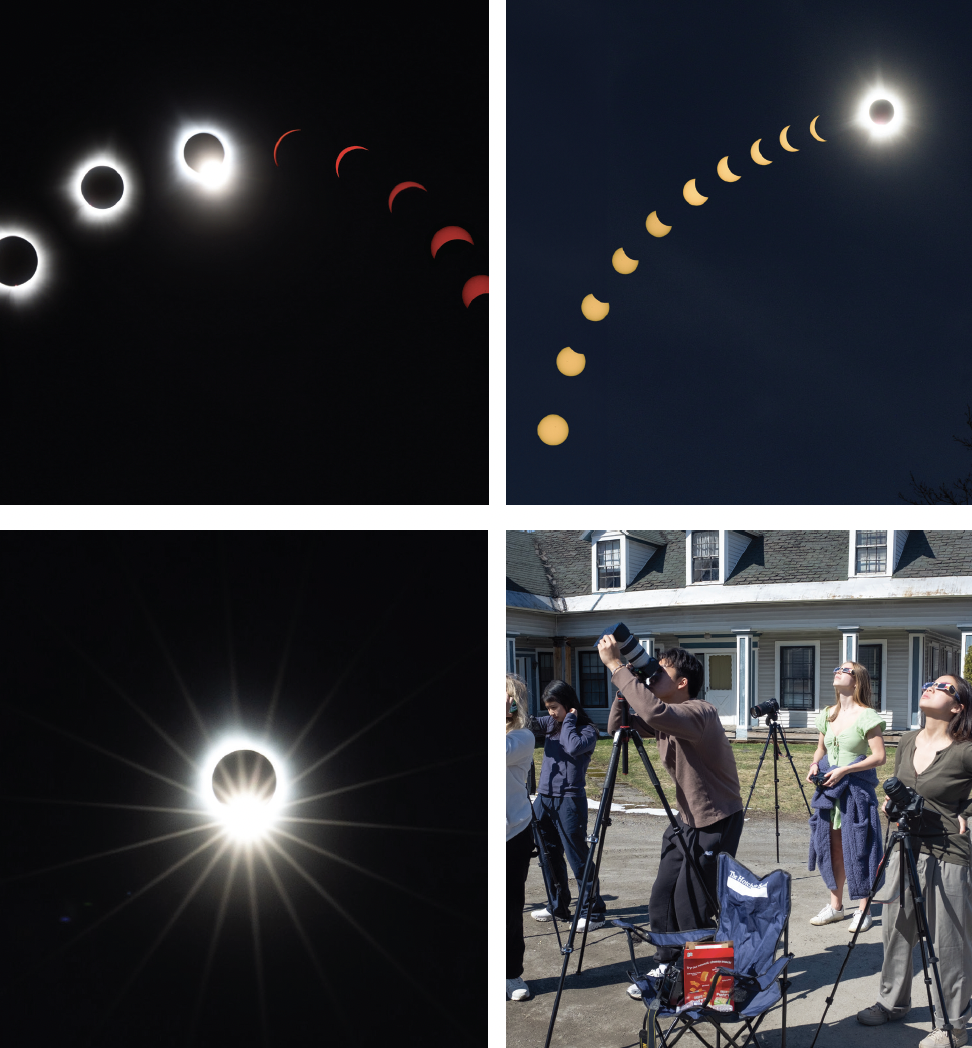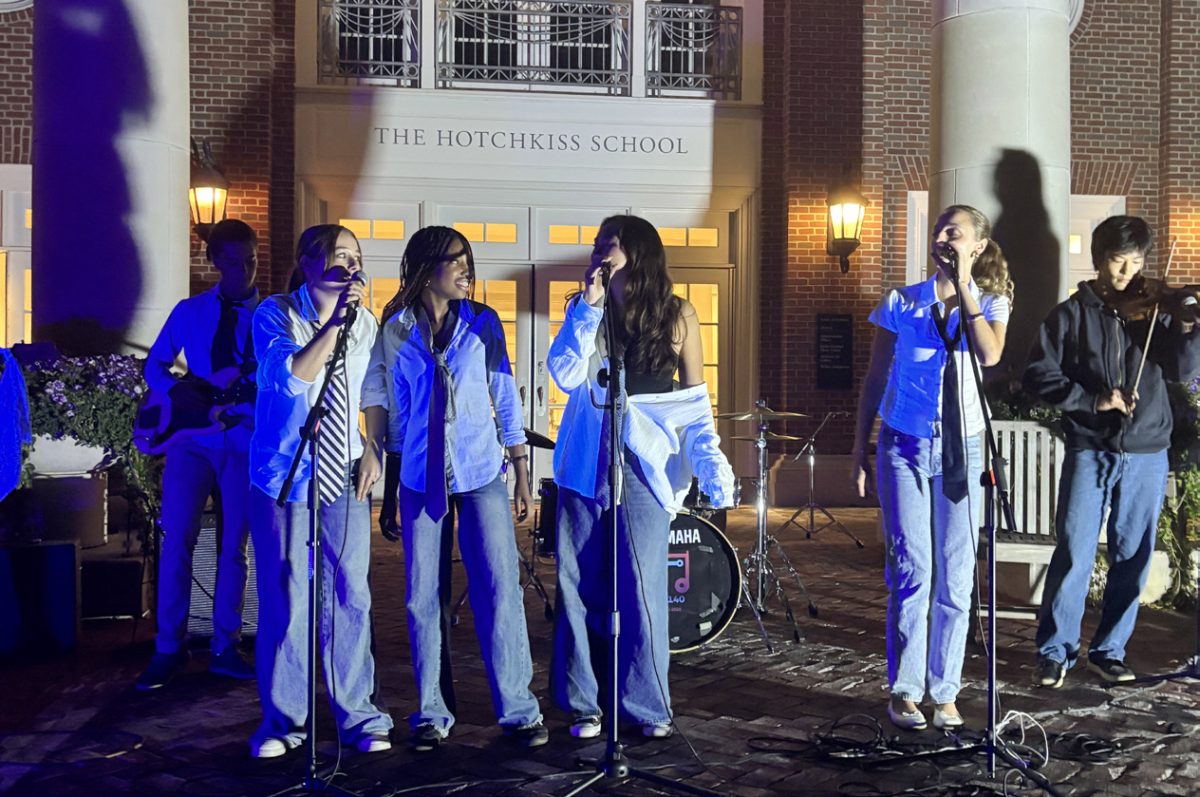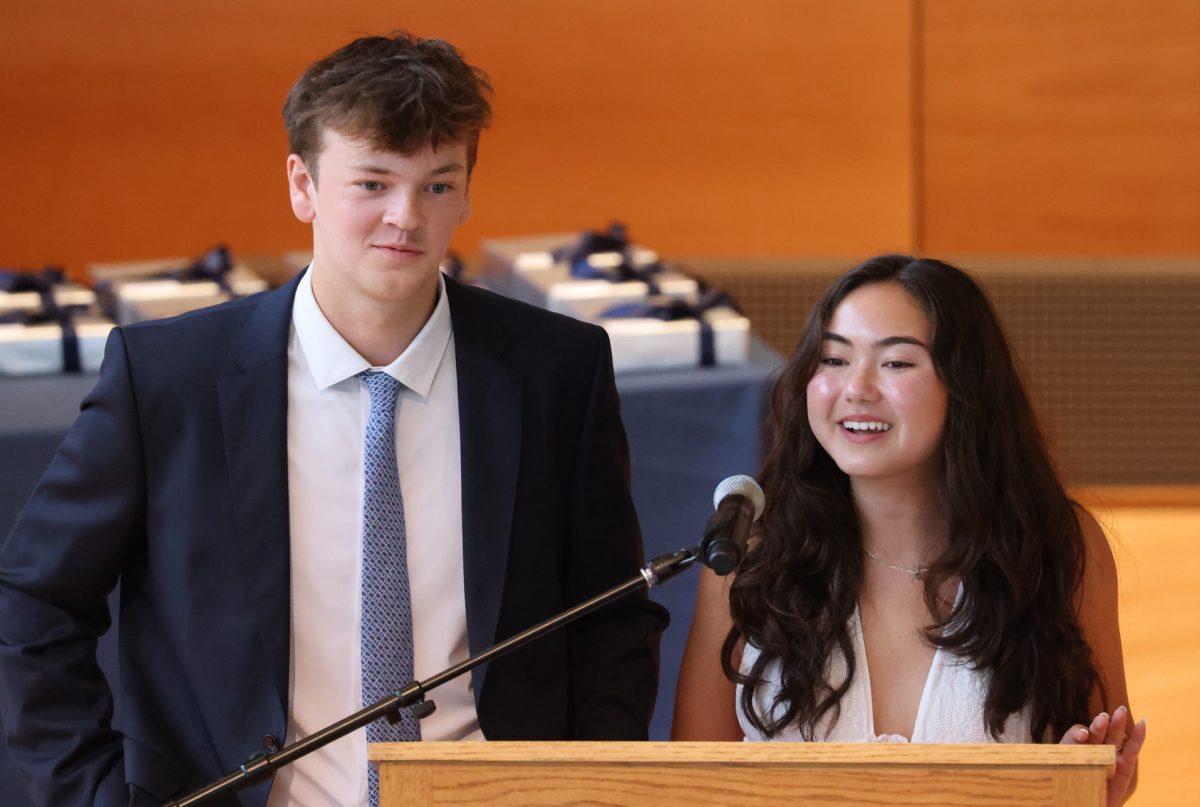On Monday, April 8, members of the community donned plastic solar glasses as they gathered on the quad outside Memorial Dormitory to witness a partial solar eclipse.
A total solar eclipse occurs when the moon completely blocks the light of the Sun. The last eclipse visible from North America took place on August 21, 2017. With a wider path of totality, however, more people across the country witnessed this year’s astronomical event compared with 2017.
For those in Lakeville, CT, the eclipse reached peak coverage of 94% at 3:26 pm. From 2:30 to 4:00 p.m., students noticed the change in temperature and light across campus.
Leading up to the event, the Astronomy Club provided the community with information to ensure safe viewing on Monday. Mr. Bill Fenton, instructor in physics and faculty advisor to the Astronomy Club, reminded students never to look directly at the sun during an eclipse. In addition, club members were stationed outside the Memorial Dormitory with telescopes and passed out solar glasses to students stopping by.
Julia Cooper ’25, board member of the Astronomy Club, said, “I was shocked by the number of people that came out to watch the eclipse. It was exciting to see so many students enjoying this new experience and I’m happy that the Astronomy Club was able to help make this possible.”
Students in the Honors Portfolio Photography class traveled to Barton, Vermont, with the Director of the Photography, Film, and Related media program, Mr. Greg Lock. With throngs of people moving north to enter the zone of totality, the four-hour trip was almost doubled.
Photography student, Daphne Barrett ’24, said, “The most exciting part of the day was definitely when the moon fully went in front of the sun. The group was thrilled with the final pictures and more importantly, the unforgettable experience we shared.”
The photo students captured the moment of totality on video and in high-quality still images, which they shared in an all-school meeting on Friday, April 12.The next total eclipse visible from North America will be in 40 years, but Mr. Lock is looking for eclipse paths for 2027.
He said, “I definitely got bit by the eclipse bug. It was a lot of fun sharing the experience with the students and I’m wondering if that is something we can plan for in 2027.”






